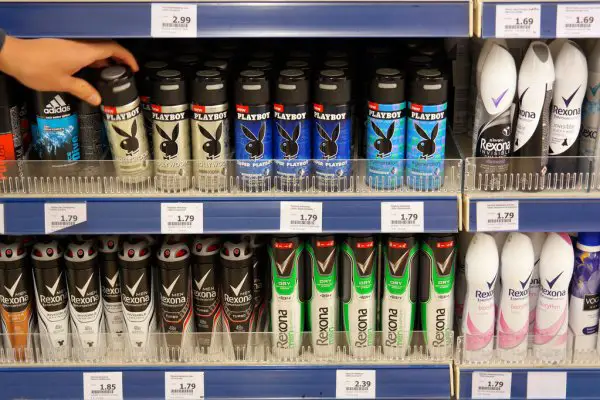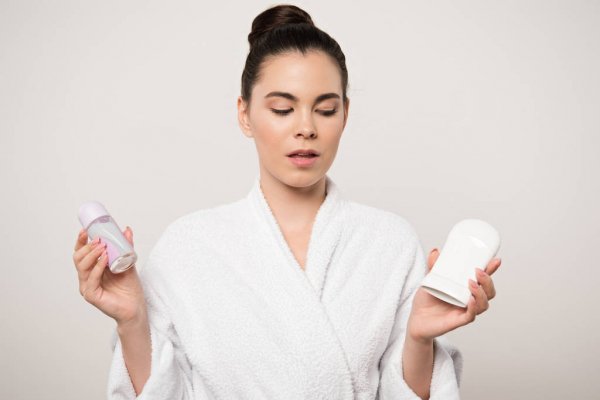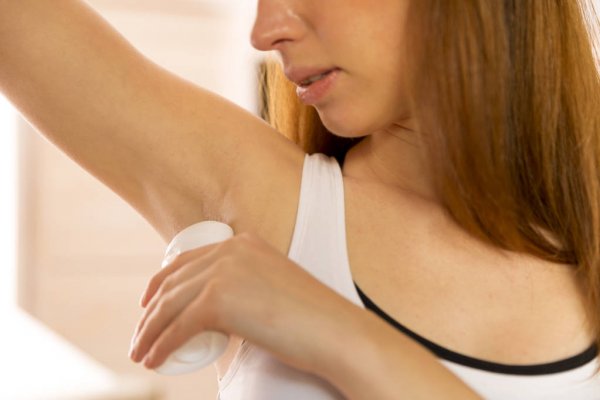
10 Best Products For Milia In Singapore For Every Budet
Editor’s Choice NEOSTRATA GLYCOLIC RENEWAL Smoothing Lotion CHECK LATEST PRICE 2nd Best Choice Peter Thomas
Finding the proper deodorant may be difficult: Should you use aluminium or not? What’s better, gel or cream? Is your strength normal or clinical? Just when we think we’ve mastered the ideal solution for our finicky underarms, a heat wave arrives to prove us wrong.
We’ve all used deodorant and antiperspirant (or at least we think we do). But did you know there is a proper technique to apply antiperspirant for optimum effectiveness?
Most of us don’t think twice about applying antiperspirant or deodorant in the morning before we leave the house. However, if you use antiperspirant in the morning, you will not obtain the full sweat-blocking effect.

To begin understanding what causes your pits to stink, dermatologist Dr. Fayne Frey explains that sweat glands in your armpits and groyne are distinct from sweat glands located throughout your body.
These apocrine glands generate “a more milky sweat, [which] empties into hair follicles prior to reaching the skin surface.” This is where the stench comes from.
All sweat is odourless until it comes into contact with bacteria on the skin’s surface. Bacteria break down various sweat components, resulting in the stench we recognise as body odour.
Antiperspirants, on the other hand, do not eliminate the odour; rather, they block the sweat glands with their aluminum-based chemicals. Sweat is stopped from reaching the skin’s surface by forming a temporary blockage within the sweat duct.
First, a discussion of the fundamentals may assist you grasp what’s going on.
According to Dr. Fine, a dermatologist, a deodorant contains chemicals that conceal or neutralise the natural odour of your perspiration, such as baking soda. Antiperspirants, on the other hand, “employ aluminium chloride to clog sweat ducts and prevent sweat from being emitted,” she explains.
This not only keeps your pits dry, but by preventing sweating, you may also prevent odour.
Your armpits are covered in apocrine glands, which are sweat glands. Lipids and proteins are found in apocrine gland fluid. When these mix with skin bacteria, the outcome is smelly sweat. Everyone has a distinct natural odour because of how this fluid interacts with the bacteria on your skin.

There might be a few reasons why your current antiperspirant or deodorant routine isn’t working.
Well sorry to disappoint. Antiperspirants and deodorants are not the same thing.
Deodorants only conceal the stench by eliminating the microorganisms responsible for body odour. Antiperspirants, on the other hand, work by preventing sweat from forming in the first place. Aluminum, the primary component in antiperspirants, blocks your sweat ducts and inhibits sweat gland production.
If you simply use deodorant, you are only addressing the odour, not the perspiration.
“Sweating is a complicated process. While its primary purpose is to control your body temperature, your body can sweat in reaction to a variety of stimuli “According to Dr. Fine.
Stress and worry are examples of this. She believes that this is what is causing the product’s efficacy to alter, rather than your body developing a tolerance to it. Remember that if you’re sweating more, you’re likely to have greater body odour. Concentrating on stress-management methods that you love, that work for you, and that fit into your schedule can assist improve your wellbeing and may also have a positive effect on your sweat rate.
Sweating is unquestionably a regular aspect of living. However, if you perspire more than others, you may have hyperhidrosis, a hereditary disease. Excessive sweating, which can affect the hands, feet, and armpits, is one of the warning symptoms.
If you notice that you sweat more than the normal person, talk to your doctor about treatment alternatives, as problems like this aren’t usually addressed with antiperspirants and deodorants.
“You may need to take internal medicine for your sweating,” says Debra Jaliman, MD, a dermatologist in New York. “Some people’s sweating is so severe that they need to take a medication called an anticholinergic every day to reduce swelling.”
There’s a thriving population of bacteria on your skin, and that’s totally natural.
However, “when your skin microbiota is out of equilibrium, that might cause issues,” according to Dr. Fine.
According to her, aggressively washing beneath your arms might harm the flora of your skin and alter your smell. As a result, avoid over-cleaning this region.
It takes time for the lotion to reach your pores and function efficiently. You’re not doing yourself any favours if you apply deodorant or antiperspirant first thing in the morning before getting dressed and heading out the door.
When you use deodorant and antiperspirant at night, it works better. Continue reading to understand more about the science behind this method.
If you’ve just switched from a standard antiperspirant to an all-natural, aluminum-free deodorant, According to experts, we should let our bodies take 30 days or so to totally transition out of using antiperspirant. After being blocked every day for several years, the detox phase allows your pores to breathe again. We must enable them to breathe and let what has been shut out be released. It should be smooth sailing after approximately a month.

When you apply deodorant or antiperspirant first thing in the morning or soon after you shower, your application is less effective.
The active component in antiperspirants, aluminium, cannot enter moist skin. In addition, when you wake up, your body instantly begins sweating (whether you realise it or not).
That means using antiperspirant while you’re already sweating or fresh out of the shower won’t help much. Constant trips to the restroom to put on additional deodorant will also not help. Because aluminium cannot travel through perspiration or water to block your sweat ducts, antiperspirant is rendered practically ineffective.
Sweat, believe it or not, isn’t what stinks; it’s the bacteria that forms in our underarms. If you manage the germs, you will be able to regulate the odour. One approach to prevent this odour is to use an antibacterial soap before applying deodorant, washing the area well to remove any germs.
To decrease foul-smelling odour, use Lasercyn Spray, called stabilised hypochlorous, twice daily and after exercise/sweating, which is a very safe, effective, and nonirritating antimicrobial.
Enter another odor-inducing factor we never considered: our apparel. Furthermore, synthetic fibres retain odour owing to the structure of the weave, whereas natural fibres such as cotton, linen, and bamboo are woven differently and enable odour to flow through the threads rather than trapping it.
What else should you bear in mind? The proper fit. If you’re wearing a close-cut rayon blouse on a hot day with natural deodorant, you’re going to start smelling for two reasons. One, the tight fit will cause friction in the underarm and retain moisture; two, the odour will be caught in the fabric.
Most of us apply deodorant to our underarms before leaving for the day, but specialists like Drs. Jaliman and Waldorf believe that the optimum time to apply antiperspirant is at night, immediately before bed. Dr. Jaliman explains that antiperspirants function best at night when the skin is dry. “The aluminum-based component can readily enter the sweat gland and block the hole. It can then be used to decrease perspiration for up to 24 hours.”
Dr. Waldorf agrees, saying that a clinical-strength antiperspirant lotion should be used before bed to minimize general sweating, and an antiperspirant-deodorant or deodorant should be used alone in the morning.
Now that you know which product is most suited to your requirements, you may study the proper application procedures.
Here’s how to correctly apply antiperspirant and deodorant to get the most out of them and keep armpit sweat and stink from spoiling your day.
Yes, there is a right time to apply antiperspirant and deodorant. Although you might not be concerned about sweat marks or odour in your sleep, swiping on antiperspirant and deodorant before bedtime is more effective than applying it in the morning.
When you apply antiperspirant at night, your sweat glands have more time to absorb the compounds. And because your body temperature cools down at night, you sweat less, giving your antiperspirant a fighting chance to absorb into your skin and block your sweat glands.
Then there’s the clincher. You don’t need to reapply antiperspirant in the morning after it has penetrated your armpit pores – even if you shower. Water will not wash the aluminium away because it has already entered your pores and is not sitting on the surface of your skin.
Showering after applying antiperspirant at night, on the other hand, reduces its effectiveness, so allow some time for the antiperspirant or deodorant to work its magic.

Antiperspirant is stronger than standard deodorant and can irritate sensitive skin. Don’t use the product immediately after shaving or on broken or irritated skin.
If you shower at night, make sure your pits are completely dry before applying antiperspirant or deodorant.
There’s no need to over-apply your deodorant or antiperspirant — a few swipes will do the job. Over-application can mess with your underarm bacteria and also leave an annoying residue on your clothing. No need to re-apply in the middle of the day, either.
If you believe your pit product isn’t banishing your B.O. as effectively as it once did, there are a few steps you can take.
Is it antiperspirant or deodorant? If it’s a deodorant, you should think about switching to an antiperspirant.
Do you already use antiperspirant? Read the label because they come in a variety of strengths. Consider upgrading to a clinical/prescription-strength product with higher levels of aluminium chloride.
Apply an antiperspirant to dry skin before going to bed. Antiperspirants work best when used at night. The products operate on a 24-hour basis and might take some time to become effective.
As previously said, there are several reasons why you may be sweating excessively these days. Working on your stress and anxiety levels isn’t a fast cure, but it will pay you in the long run.
If you suspect it’s the consequence of a drug, or if you’re feeling particularly lousy (as well as sweating), you should consult your doctor to rule out medical causes.
If you’re not sure why you’re stinking up the place recently and need to stop sweating, make an appointment with a dermatologist who can help you discover a solution.
It might be difficult to think of giving up your favourite deodorant or antiperspirant, but Dr. Fine says there is an incredible new product called Qbrexza, which is a medicated wipe that blocks the neurotransmitters that activate perspiration. “It’s really good for the underarms,” she explains.

In short, using an antiperspirant to reduce perspiration should not impair your body’s capacity to eliminate toxins. Deodorants and antiperspirants, in general, are safe products that most individuals in excellent health may use.
A deodorant is a product that is applied to the body to prevent odour generated by the bacterial breakdown of sweat in the armpits, feet, and other places. Deodorants are frequently alcohol-based, with some antibacterial activity to temporarily kill germs and prevent odours from forming.
Is a deodorant really necessary? However, it turns out that not everyone need it. You smell because bacteria in your armpits break down lipids and amino acids contained in perspiration and convert them into compounds with an unique odour.
So, before buying a deodorant, pick wisely! We hope this article helped you identify reasons why your deodorant stopped working.

A beauty blogger. Has knowledge on hair care, skin care and everything else!

Editor’s Choice NEOSTRATA GLYCOLIC RENEWAL Smoothing Lotion CHECK LATEST PRICE 2nd Best Choice Peter Thomas

Editor’s Choice Coppertone Sport Continuous Sunscreen Spray Broad Spectrum SPF 50 CHECK LATEST PRICE 2nd
Last Updated on October 4, 2021 by Elizabeth Priangkaa